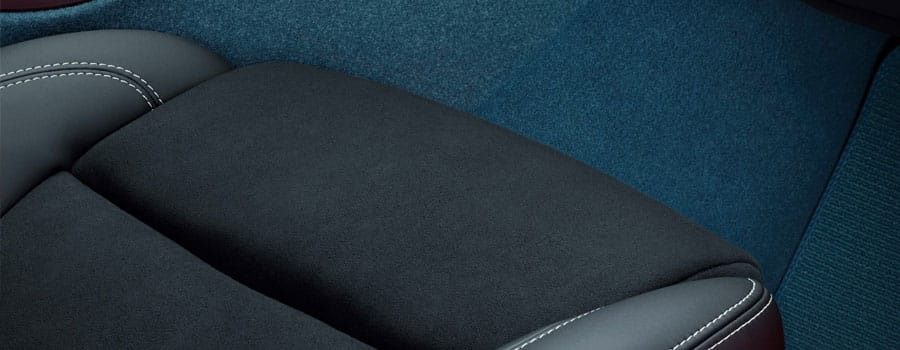Making cars ethical - the Vegan Volvo

If you're going to go green you may as well go the whole hog. Although in the case of a vegan car, maybe hog is the wrong analogy...
Let's try again.
It's not exactly news to learn that Volvo considers itself an ethical company. In all honesty, you can't really bang on about safety and protection for that long without it rubbing off on the rest of the company. Like every other mainstream manufacturer, Volvo has recognised the shift to electricity is inevitable and is planning a whole family of electric cars that will entirely replace the internal combustion models by 2030.
Making the switch to EV production isn't really an ethical question when there's no real choice though. All the manufacturers are taking that same decision. Where Volvo has chosen to make an environmental commitment is actually on the inside.
Starting with the new C40 Recharge, all new fully electric Volvo models will be completely leather-free. Instead of leather interior options, Volvo will offer its customers alternatives such as high-quality sustainable materials made from bio-based and recycled sources. As part of its ambition to go completely leather-free, Volvo is working on high-quality and sustainable sources for many materials currently used in the wider industry.

For example, Nordico, a new interior material created by Volvo, is made from recycled material such as plastic bottles, waste material from sustainable forests in Sweden and Finland, and corks recycled from the wine industry. By 2025, Volvo is aiming for 25% of the material in its cars to consist of recycled and bio-based content. As part of its climate action plans, it also aims for all its immediate suppliers, including material suppliers, to use 100 per cent renewable energy by 2025.
The company's move towards
leather-free interiors
is also driven by a concern about the environmental impact of cattle farming. Livestock farming is estimated to be responsible for around 14% of global greenhouse gas emissions from human activity, with the majority coming from cattle farming. Volvo isn't just dropping the leather seats; it's also looking to reduce the use of other products from livestock production used within the cars. Think of all the bits of plastic and rubber, lubricants, and adhesives that go into building a car.
Whether it's for reasons of animal welfare, or the environmental concerns of the sheer amount of energy that goes into raising cattle doesn't really matter. The fact remains that Volvo cars will, as well as being all-electric, be entirely leather-free by 2030.
If you want a vegan Volvo, then start your search for the
best lease deal here
.
View our latest blog posts

Categories
Pages
We are a family run business based in rural Worcestershire. Our team of 38 staff are on hand to provide an exceptional service to personal and business customers.
Read More
